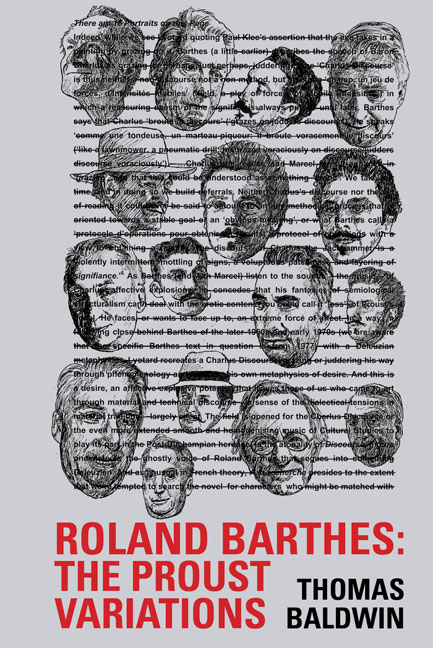2 - Eros, Rhythm
Summary
In Le Plaisir du texte, Barthes distinguishes two regimes of reading. The first, he says, goes ‘straight to the articulations of the anecdote’ and ‘considers the extent of the text, ignores the play of language’ (IV, 225). I lose discourse (‘Je perds du discours’ (IV, 225)), and yet my reading is not, Barthes argues, ‘fascinated by any verbal loss – in the speleological sense of that word’ (IV, 225). In contrast, the second regime is enthralled by such linguistic playfulness and loss (the speleological connotations of which we shall return to in a moment):
The other reading skips nothing; it weighs, it sticks to the text, it reads, so to speak, with application and transport, grasps at every point in the text the asyndeton that cuts languages – and not the anecdote: it is not (logical) extension that captivates it, the winnowing-out of truths, but the layering of signifiance. (IV, 225)
While Barthes's first reading diet is more suited to consumers of the classics, the second is prescribed for readers of modern texts. I do not devour the modern work. I take my time: I ‘graze’ (‘brouter’).5 There is pleasure in both regimes of reading, of course, but it is only the second that is, for Barthes, the source of truly erotic bliss.
How, then, does Barthes understand the erotic? In an interview with Hasumi Shiguéhiko in 1972, he contends that he is moving away from what concerned him in his ‘scientific’ past (while refusing nevertheless to deny its value). His semiological fantasy (‘fantasme’) has given way to the solicitations of a ‘theory of the signifier, of the literary erotic’ (‘théorie du signifiant, de l’érotique littéraire’). In what does this new theory of the signifier consist, and how is it connected to the erotic in literary texts (and, more specifically, in Proust's novel)? A partial response to this question is provided in the following passage from ‘Texte (théorie du)’, first published in 1973, one year after the interview with Shiguéhiko and in the same year as Le Plaisir du texte:
Signifiance, contrary to signification, cannot be reduced to communication, representation, expression: it places the subject (of the writer, of the reader) in the text, not as a projection, even if that projection is fantasmatic (there is no ‘transport’ of a constituted subject), but as a ‘loss’ (in the speleological sense of the word);
- Type
- Chapter
- Information
- Roland Barthes: The Proust Variations , pp. 47 - 78Publisher: Liverpool University PressPrint publication year: 2019

